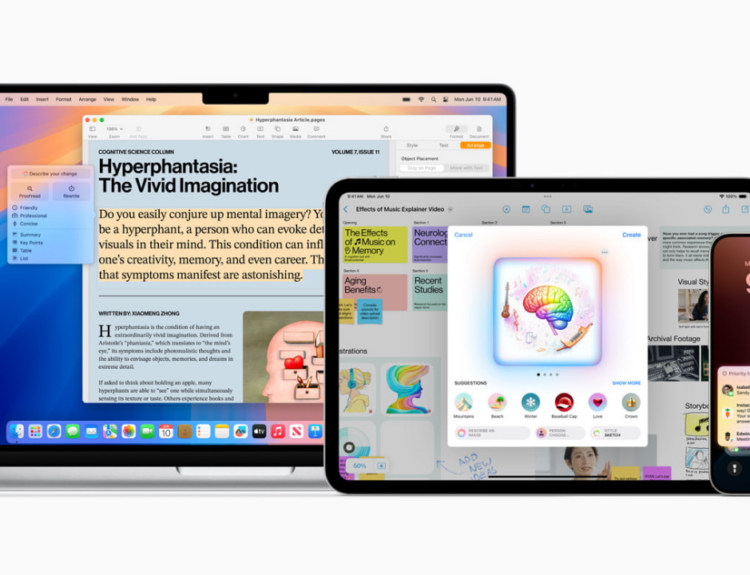On October 15, AI made its debut on the Doctolib platform, known for making online medical appointments. AI provides several innovative services such as the virtual consultation assistant, smart appointment booking, etc. The desired objective: to give back medical time to practitioners and improve the service offered to the 90% patients who use the platform in France.
As we know, Artificial Intelligence has already invested in the health sector, particularly in diagnostics, without yet impacting the daily lives of the French. And while we must recognize that Doctolib and its online medical appointment booking service has changed the lives of patients and doctors in 10 years, it has not managed to eliminate the lack of healthcare offers in France.
This is why, starting this Tuesday, October 15, Doctolib is bringing AI to its platform of services dedicated to doctors and patients. A first! With the ambition of massively restore medical time and efficiency to the provision of care medical, victim of the accumulation of three evils: the shortage of caregivers, the administrative burden, the missed appointments.
An accessible challenge when you know that the platform, known above all for facilitating the making of medical appointments online, is today used by 9 out of 10 French people on a daily basis.
Co-created in France in April 2013 by Stanislas Niox Chateau, its current CEO, the platform has since expanded its offering to Germany, Italy and the Netherlands. She now actually claims 90 million patients and 1 million healthcare professionals users! Which will effectively allow the introduction of AI to weigh on the organization and practice of care to counterbalance the shortage of doctors in France and Europe.
From October 15, Doctolib is introducing AI into its software, those of its appointment platform, and those made available to doctors to work. Thanks to its efficiency, the CEO and co-founder of the platform, Stanislas Niox-Chateau, offers several significant advances, beneficial to both physicians and patients. And by impact on the entire health system.
1. “consultation assistant” who gives back time for care
First mission of AI, according to Doctolib: " increase the quality of the exchange between the doctor and the patient ». Thanks to this innovation, doctors can fully concentrate on their patient without being distracted by the usual and time-consuming note-taking. A true assistant-listener during the consultation, AI " listen ", automatically transcribes the exchanges, the practitioner then only has to reread and check the report and even theorganization of the data collected, once the patient has left.
This gain in time dedicated to care and concentration, requested by doctors, must, according to the CEO of the platform, contribute to improve the quality of clinical observation And strengthen the depth of the human bond with the patient, thus putting an end to a recurring criticism. All this with a probable downward impact on the risk of medical error.
2. “Stunning” report
The importance of the consultation report is no longer in doubt. But listening to a patient, taking notes, while "tilting" on an element, a symptom that seems harmless, is not an easy thing, especially if, overwhelmed by the demand, the doctor accumulates fatigue and stress. This is why Doctolib has worked extensively on the AI-consultation assistant, tested for several months by 350 volunteer doctors. Today, Stanislas Niox-Chateau does not hesitate to mention the "amazing transcription quality" of his AI, to which is added a relevant automatic sorting of the data collected during the consultation. What reduce human errors related to manual note-taking, although current AIs are not infallible and require continuous monitoring.
3. More relevant “Appointment Assistant”
Another innovation brought by AI is the provision of an “intelligent virtual assistant” for making appointments, another time-consuming aspect of the medical practice. Implementation in 2025, This automated feature will allow patients to benefit from faster and more intuitive appointment booking, thanks to recommendations based on their consultation history but also the analysis of the specific need of the moment : type of consultation, emergency, medical history (which the Doctolib platform does not currently do), to offer the most suitable slots for each person, taking into account of course the practitioners' schedule constraints and the patient's availability. This tool was designed to be fully modular, adapting to the specificities of practitioners and the types of care required.
In addition, this AI ensures that patients receive automatic reminders and notifications, which limits forgetfulness and last-minute cancellations, something Doctolib already does today, to prevent “rabbit appointments”.
More data collected, but no storage
This use of AI inherently implies a much more massive data collection and systematic than before. Which raises again the question of the storage and use of this health data considered by some as the new black gold, so valuable is it, particularly for research. From this point of view, Doctolib assures that the conversations transcribed between the doctor and his patient, as well as The data collected will not be stored or sold. by Doctolib. The patient will also be able to object to the intervention of AI in the consultation., its explicit agreement is also provided for in the protocol which will be put in place.
A new wave of innovations, therefore, for Doctolib, after appointment reminders, online payment, the introduction of a health record, teleconsultation appointments... It is clearly not for nothing that the founder of the French unicorn, Stanislas Niox-Château, has been considered for several years now as the favorite entrepreneur of the French, according to Forbes magazine.






